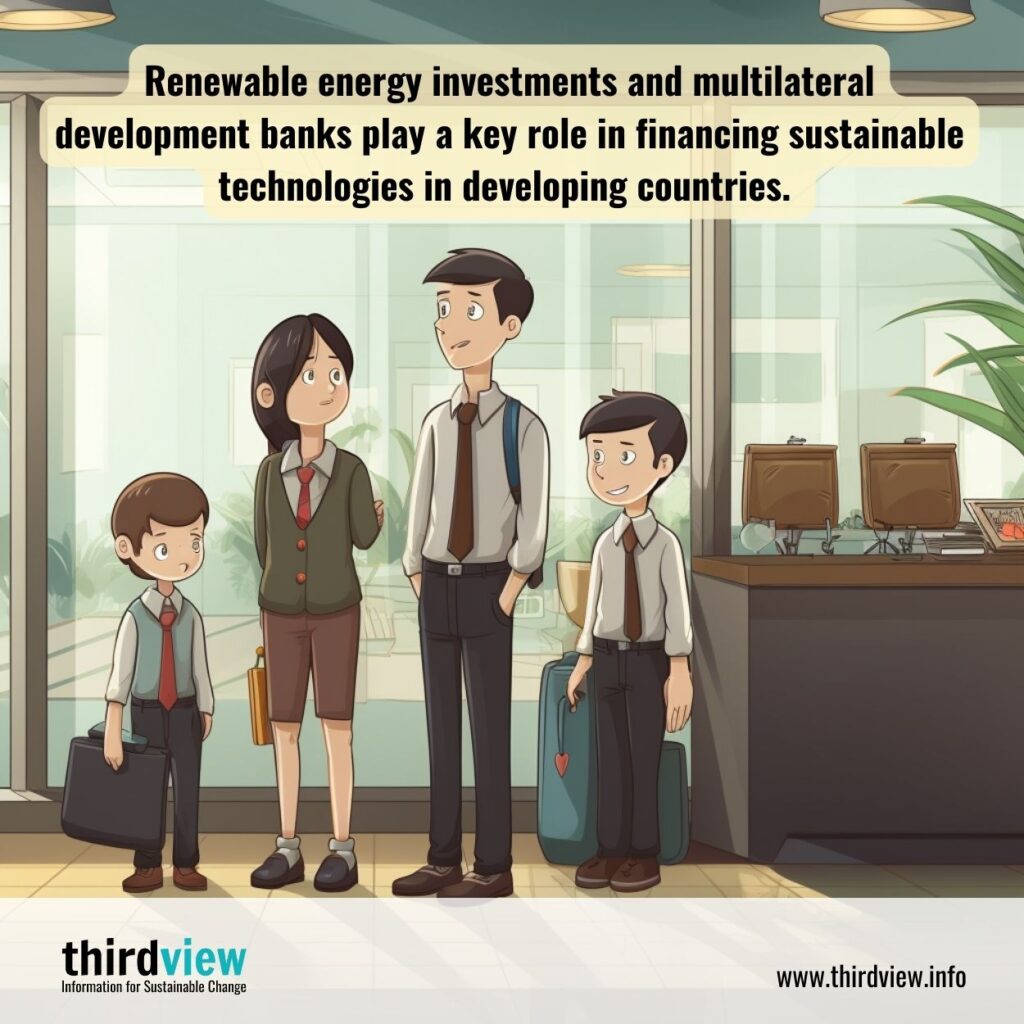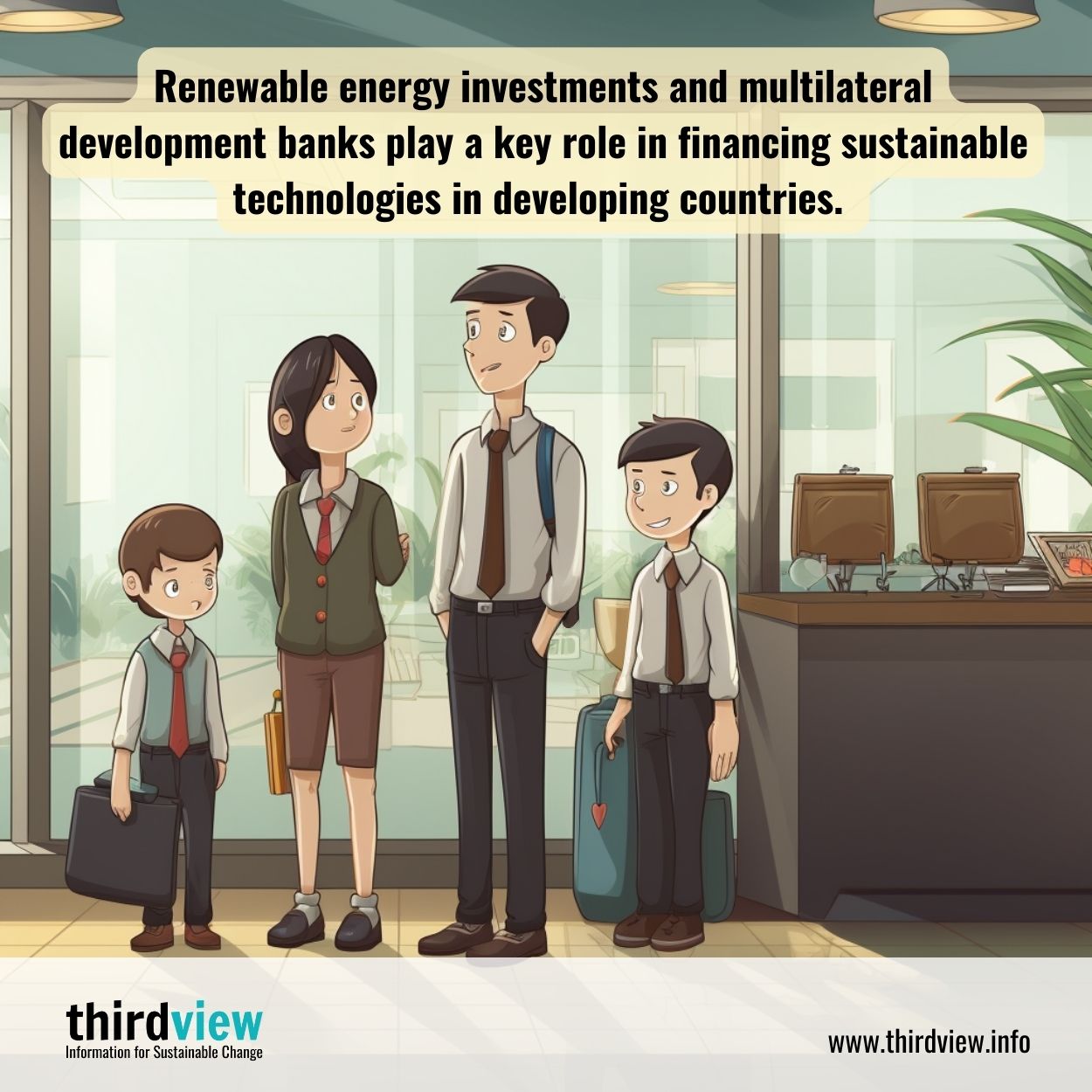Sustainable technologies help in minimizing the negative impact on the environment while enhancing the social, economic, and environmental benefits. Accessing financing for sustainable technologies in developing countries has been a challenge, but it is essential for their economic development. This blog post outlines some insights on how developing countries can access financing for sustainable technologies.
Invest in Renewable Energy
Renewable energy is a promising sector that can attract financing for sustainable technologies in developing countries. Governments can provide incentives such as subsidies, tax credits, and feed-in tariffs to attract private investment in renewable energy. Developing countries can also establish public-private partnerships to attract financing for sustainable energy infrastructure projects such as hydro, wind, and solar power projects.
Approach Multilateral Development Banks (MDBs)
MDBs, such as the World Bank and the African Development Bank, are a critical source of financing for sustainable technologies in developing countries. They provide loans, grants, and technical assistance to developing countries for sustainable infrastructure projects. Developing countries can take advantage of these financing opportunities to support sustainable transportation, renewable energy, and water management projects.
Participate in Climate Funds
Developing countries can participate in climate funds such as the Green Climate Fund (GCF) and the Climate Investment Funds (CIF) to access financing for climate change mitigation and adaptation projects. Climate funds provide financing for sustainable infrastructure projects such as renewable energy projects, energy-efficient buildings, and low-carbon transport infrastructure.
Encourage Private Sector Participation
The private sector can play a significant role in financing sustainable technologies in developing countries. Governments can create an enabling environment for private sector participation through the establishment of regulatory frameworks and the provision of incentives. Developing countries can also establish public-private partnerships through joint ventures with private-sector companies to finance and develop sustainable infrastructure projects.
Domestic Resource Mobilization
Domestic resource mobilization involves domestic savings and the use of tax revenues to finance sustainable development. Developing countries can use their domestic savings to finance sustainable infrastructure projects such as renewable energy and water management projects. Developing countries can also optimize their tax revenues through reforms in the tax system, by targeting tax evasion and avoidance and redirecting tax incentives towards sustainable infrastructure projects.
Sustainable technologies are essential for developing countries’ socio-economic development, but financing has been a challenge. Accessing financing for sustainable technologies requires a mix of strategies, including investment in renewable energy, MDBs, climate funds, private sector participation, and domestic resource mobilization. Developing countries should prioritize sustainable technology financing as it has benefits in the long run, including improved economic growth, environmental protection, and social benefits, including job creation and poverty reduction.


